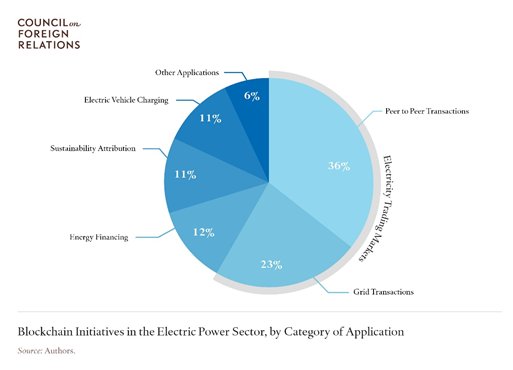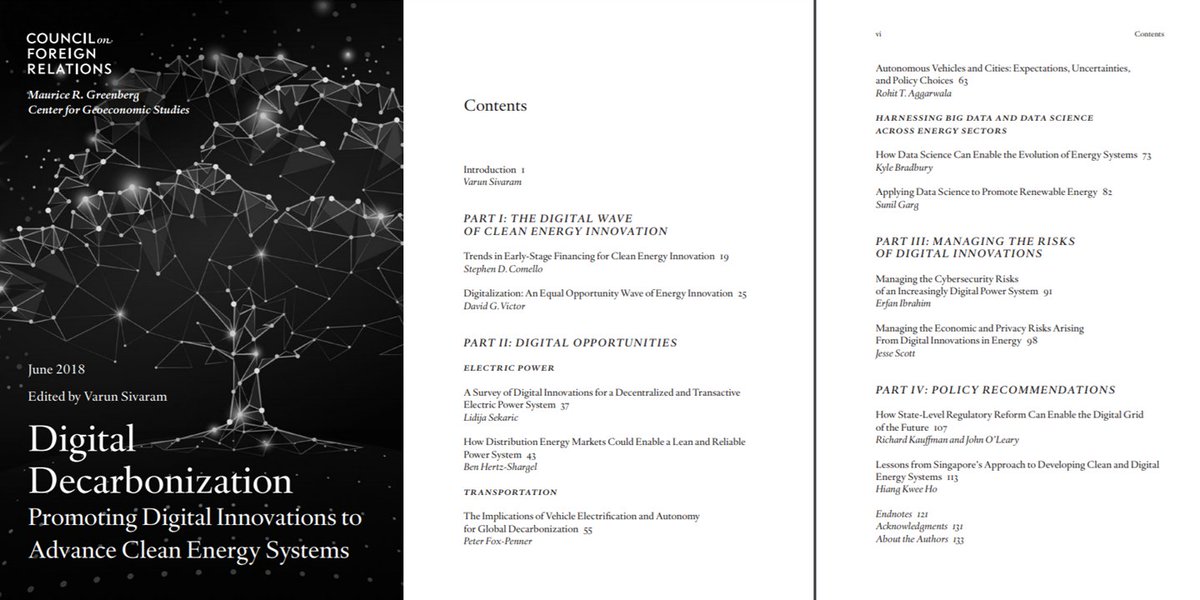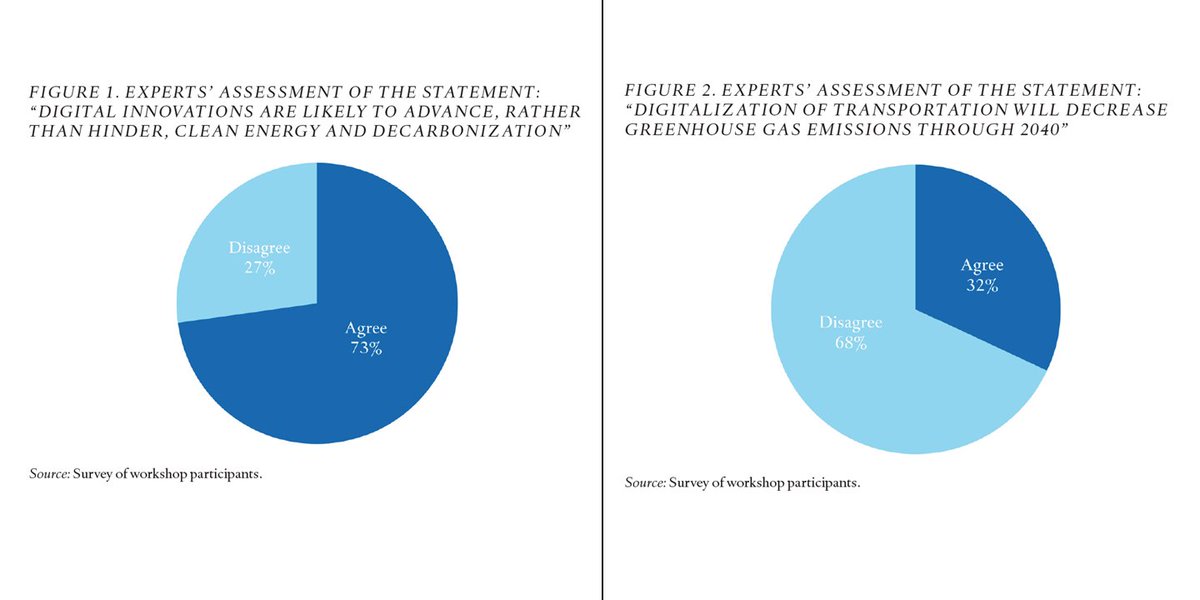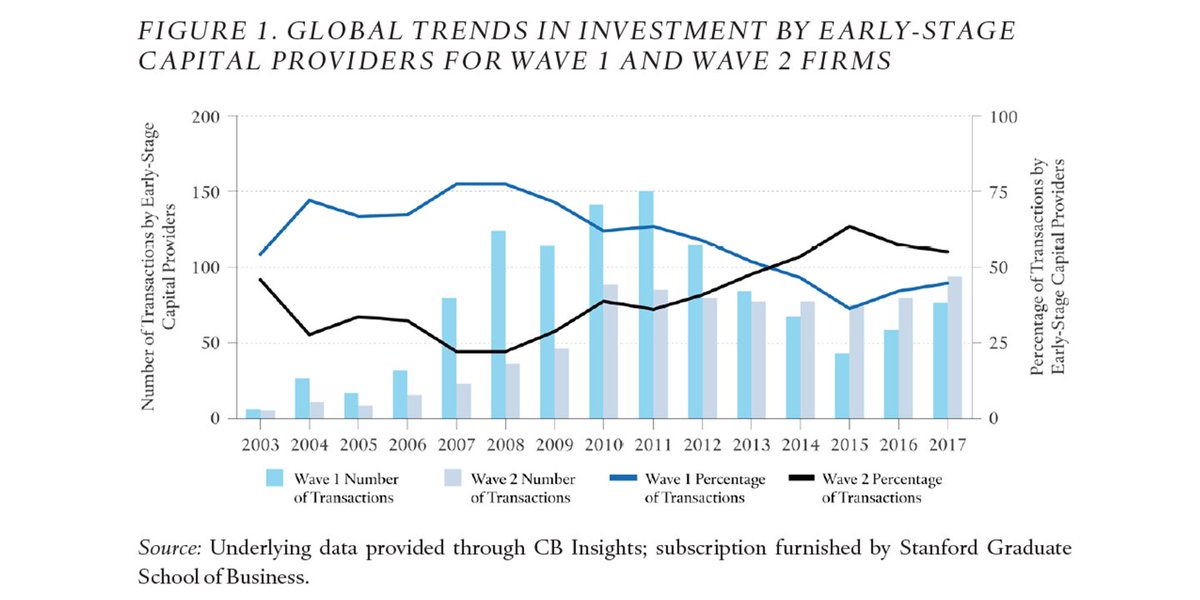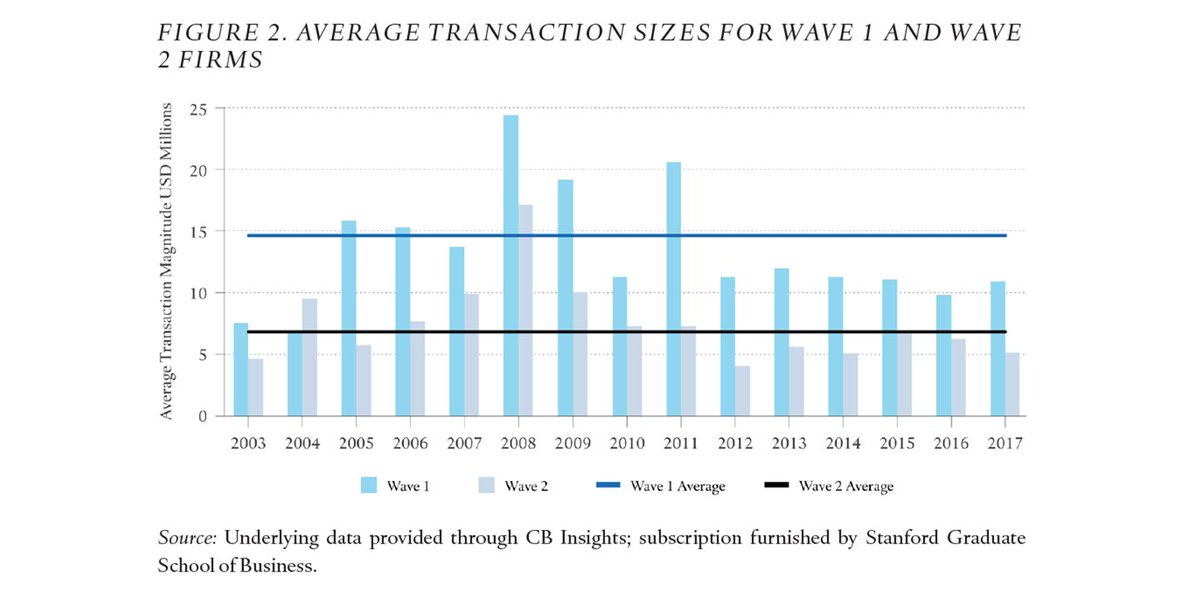🚨🚨Today we're publishing Energizing America: A Roadmap to Launch a National Energy Innovation Mission! You can download it for free from @ColumbiaUEnergy or order the paperback on Amazon (#1 clean energy new release!). 🧵👇🏽on what it's all about (1/10) bit.ly/energizingamer…
The US has a storied history of launching national innovation missions. They've delivered life-saving drugs, spawned the computer & internet revolutions, and put a man on the Moon. But we've never launched a serious, sustained innovation mission to combat climate change (2/10)
Time to change that—and seize this political window. A President Biden would make “the largest-ever investment in clean energy innovation" & bipartisan support in Congress is growing. (In rare show of resistance, Republican lawmakers raised funding by 25% over Trump years) (3/10)
Energizing America is a roadmap to triple federal funding for clean energy innovation to $25 billion by 2025. It's ambitious AND achievable. Lower than previous nat'l missions and today's health & defense innovation funding, but high enough to level playing field w/ China (4/10) 
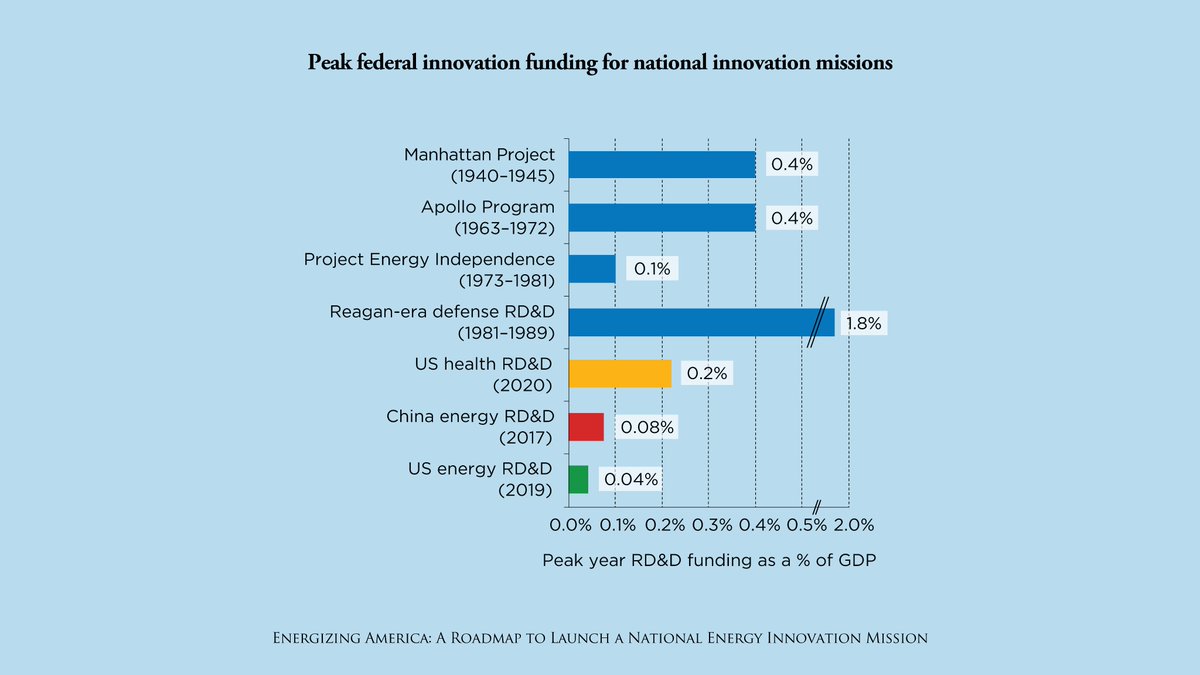
Innovation can speed decarbonization—investing in better & cheaper cleantech could be America's greatest contribution to global climate fight. HALF the reductions in a swift global net-zero transition must come from technologies that aren't yet commercially available ~@IEA (5/10) 
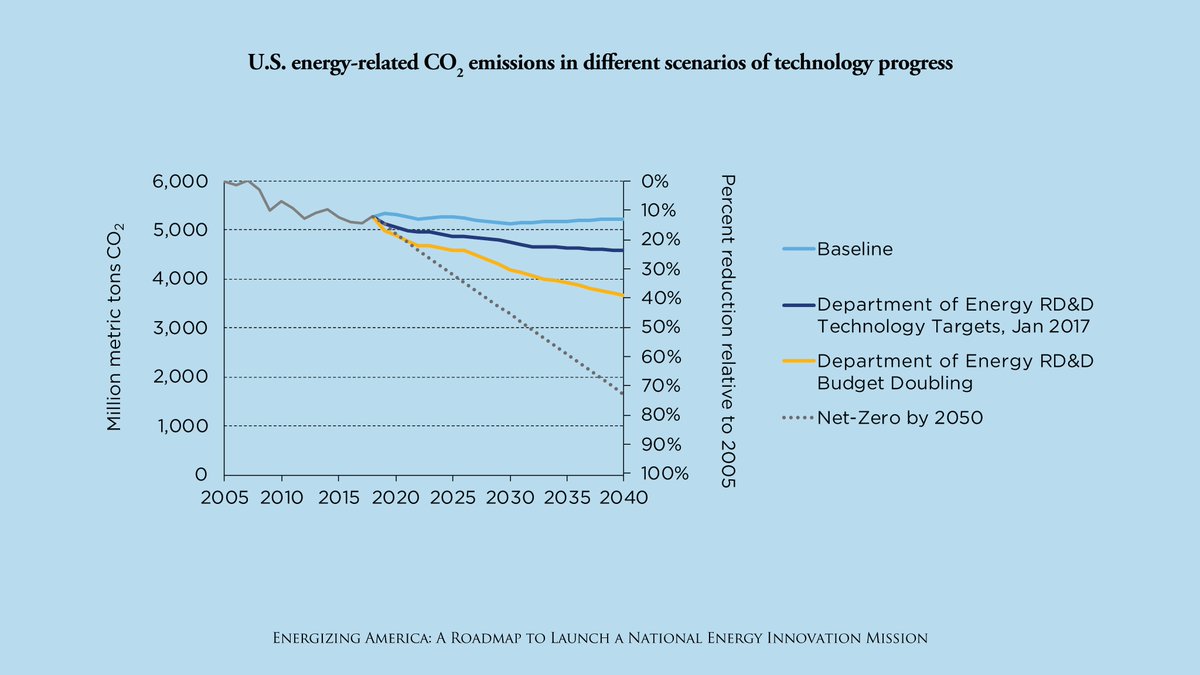
But HOW should we spend $25 billion by 2025? A year ago, @JasonBordoff warned me that high-level funding targets weren't enough, and the next administration and Congress would need a detailed roadmap and 100-day plan to ramp up investments...right about now. (6/10)
So that's what we created—an instruction manual for the National Energy Innovation Mission. Ten technology pillars, representing critical decarbonization needs (many underfunded). Six strategic principles to maximize diversity. And a 100-day plan to hit the ground running (7/10) 
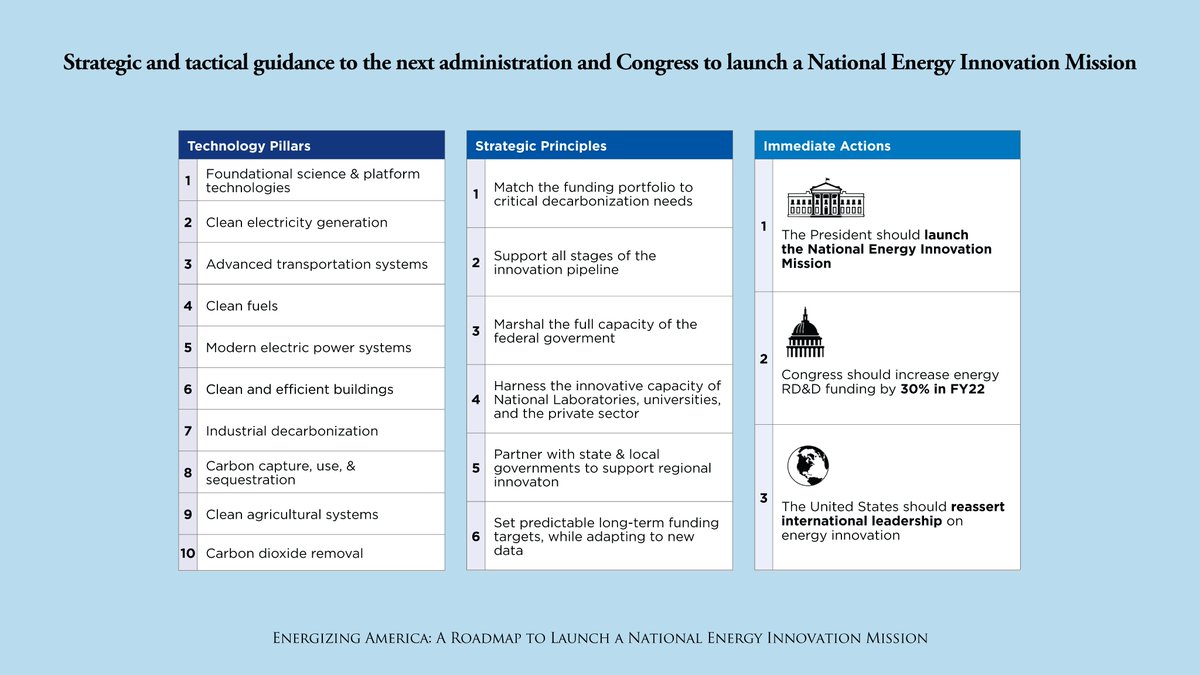
Our proposal would see federal funding for DOE double—& rise even faster in other agencies w/ the capacity & mission (DOD, NASA, NSF, USDA). Underlying this, we created the most comprehensive database of federal clean energy RD&D spending (bc Trump stopped measuring it) (8/10) 
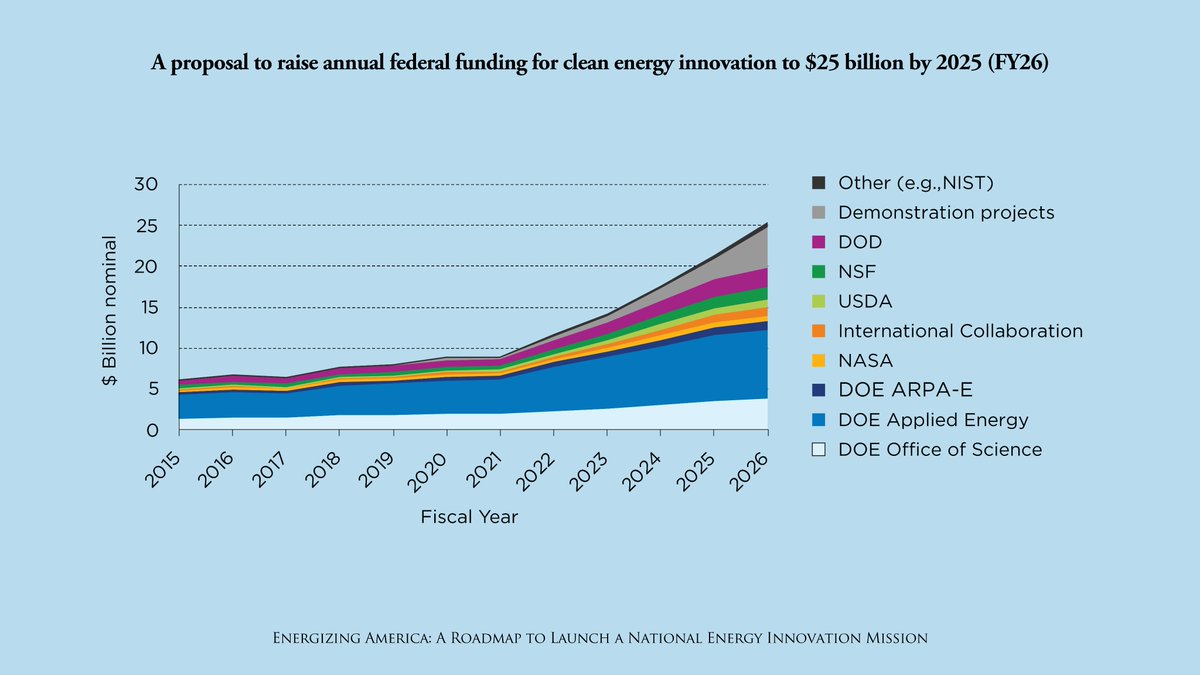
After Inauguration 2021, there won't be any time to waste. The President must submit a first budget for FY22 & Congress will start holding hearings. So we've made detailed office & sub-office recommendations across the government, focusing on underfunded Technology Pillars (9/10) 
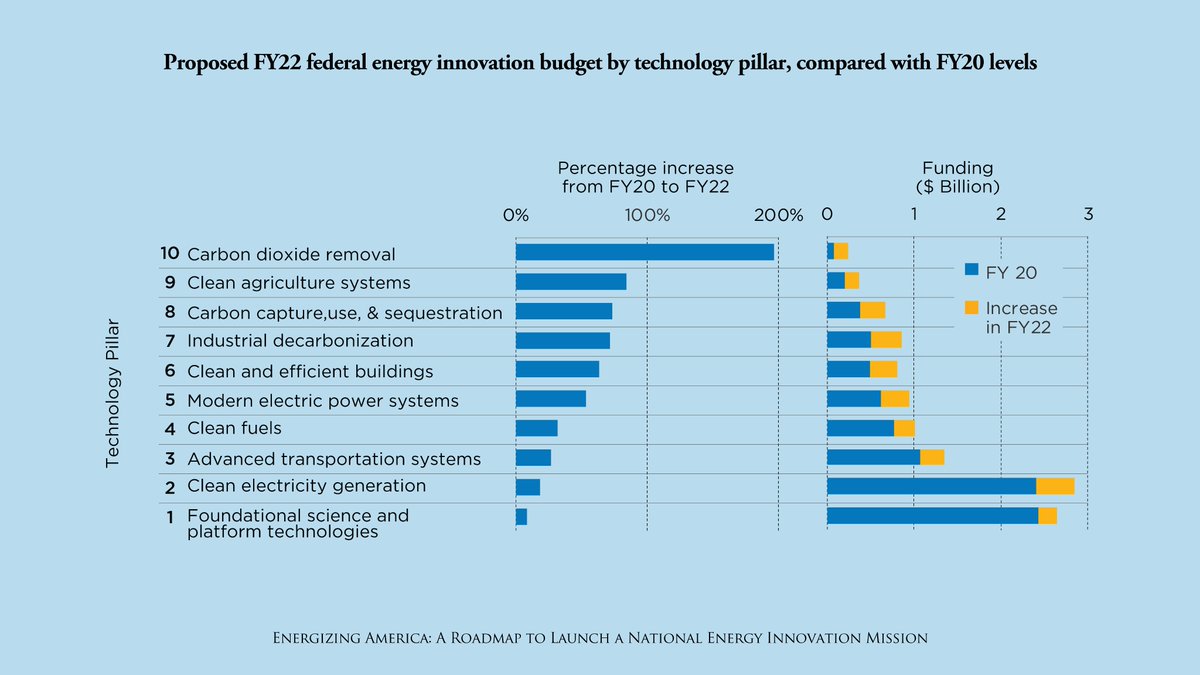
I'm so lucky to have worked with incredible co-authors, both @ColumbiaUEnergy (David Sandalow, @CarbonWrangler) and @ITIFdc (@ProfDavidHart, @colincunliff), and we are deeply grateful to @Breakthrough for support on the project. Strap in, time to launch this mission! (10/10) 
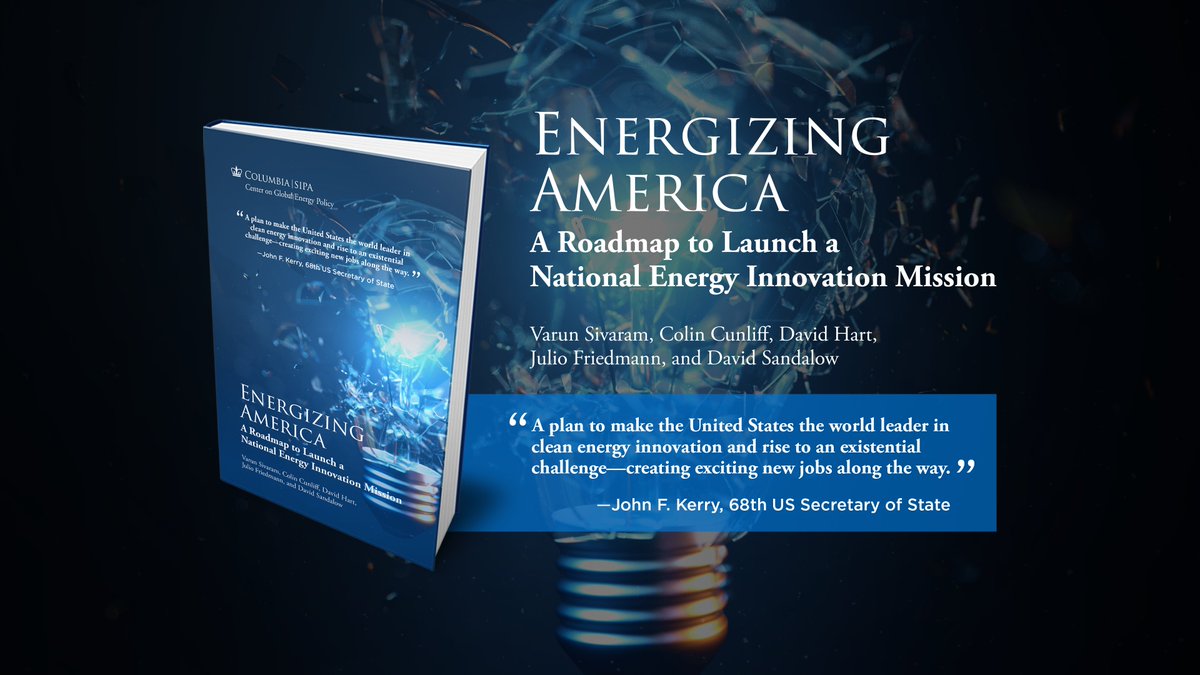
Bonus tweet #1: Shoutout to @GregGershuny, @SonalRShah, and the whole @PeteButtigieg crew, where we did some of the early analysis on defining a roadmap to $25B by 2025. #TeamPete
Bonus tweet #2: This volume took a village. My undying gratitude to @ArtealiaG (have you seen the website she designed?? bit.ly/energizingamer…), @FitzLJ, @NelsoninNewYork, @Gen_Mo11, & the whole @ColumbiaUEnergy team I can't find on Twitter. Same to phenomenal @ITIFdc team 🙏🏽🙏🏽
Bonus tweet #3: We're launching at @ClimateWeekNYC
—join us! Headlined by @LSRTweets, fmr US Dep Secretary of Energy, & @KathyCastorFL, Chair of House Select Committee on the @ClimateCrisis, and
@JasonBordoff, who conceived & supported the whole project! energypolicy.columbia.edu/events-calenda…
—join us! Headlined by @LSRTweets, fmr US Dep Secretary of Energy, & @KathyCastorFL, Chair of House Select Committee on the @ClimateCrisis, and
@JasonBordoff, who conceived & supported the whole project! energypolicy.columbia.edu/events-calenda…
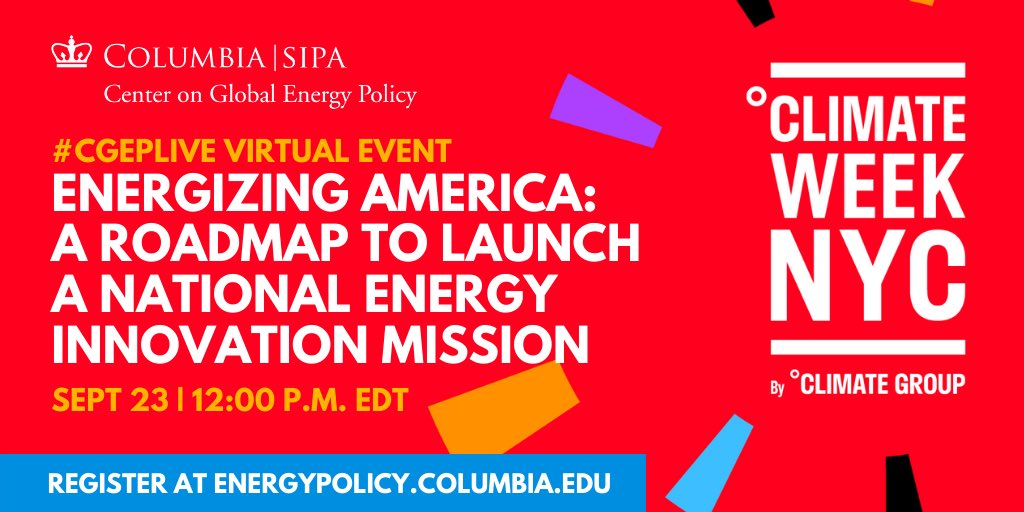
• • •
Missing some Tweet in this thread? You can try to
force a refresh


